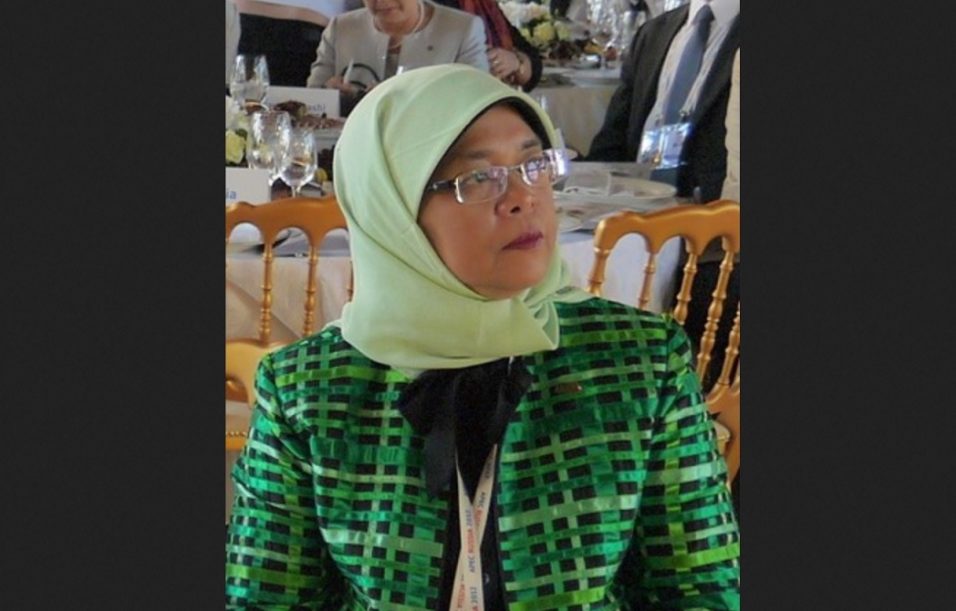Finally, Singapore has a female president. A woman as our head of state. Her photo will hang in every government building, not as the benevolently smiling wife, but as the boss.
I would have expected myself to be bloody ecstatic.
Instead, I’m feeling a range of emotions that run the gamut from a simmering anger to an exasperated eye-roll. The pride I should have felt over what would otherwise be significant progress in the political landscape of my country has been usurped by an overwhelming sense of having been taken for a ride.
It’s been over a year since the People’s Action Party (PAP) government said that they would make changes to the Elected Presidency to include this “hiatus-triggered model”. Over a year of parliamentary speeches, of think pieces, of forums, of Facebook posts, of challenges in court, of “oops I called her Madam President” slips, of will-Halimah-run-or-not faux-suspense. Of wayang, wayang, wayang.
I know that Singapore’s democracy flawed, an illusion in many respects. I know about the gerrymandering of electoral boundaries, of the obstacles deliberately erected to trip up opponents, of the calculated coercive actions that extract costs from opposition politicians and dissidents alike.
Yet this presidential “election” has been its own sickening reveal—a demonstration of a ruling party so up itself that it would prioritise its own power and self-interest over what’s good for the country and its democratic processes. Or, and this is almost worse, a ruling party who has conflated itself with the country so much that it believes its self-interest is the country’s interest.
The implications are terrifying; if the PAP’s #1 goal is to consolidate its own power, what will (or won’t) it do?
After the optimistic-sounding “new normal” post-2011, civil and political space has been shrinking once again in Singapore. Key members of the opposition Workers’ Party are now facing lawsuits for huge amounts of money. We’ve been promised laws that will further restrict free speech and press freedom, all in the name of maintaining religious harmony and combating “fake news”. Academics, artists and activists have been pushed out of the country, either through the denial of visas and permits or of employment. The police have opened an investigation into activists, reporters and supporters—myself included—for attending a candlelight vigil for a death row inmate who was about to be hanged at Changi Prison.
But it’s not enough to just look at the PAP. We need to look at ourselves too. Despite the presidential election triggering widespread scepticism and unhappiness, there was no organised grassroots resistance. There were plenty of frustrated, cynical social media posts; it was clear that there was no shortage of intellectual discussion or criticism. Yet there was little to no on-the-ground action, no mobilisation or organising to mount greater opposition to this farce.
There are, of course, reasons for this: years of oppression, restriction and restraint, of an education purged of awareness of civil and political rights. But we can’t wait for the government to loosen the reins before we shake ourselves out of this inaction, because, as we’ve just seen, they have no intention of doing anything of the sort.
It’s going to get tough; action will not be without risks. But silence and paralysis can’t be the answer. The more we resign ourselves to our fate, the more we tell ourselves that “this is just how Singapore is”, the more we wait for that magic election where the scales will suddenly tip in the opposition’s favour, the more inevitable results like this joke election will be.
To resist further erosions of our democracy, we need to build: build awareness, build networks, build solidarity. We need to be activists for our own cause, and democracy is our own cause.
This is not to say that we should all take to the streets right now (although, if that’s what you want to do, it should be your right). But we should find ways to push ourselves and the people around us a little more—to normalise (intelligent) political discussion, to be more critical about the assumptions we make on a daily basis, to refuse to simply sit down and accept. We need to find our comfort levels, then push ourselves a little further. If you’ve been a casual observer, educate yourself more. If you’ve been passively attending events, find ways to volunteer and contribute more actively. If you’re already a member of civil society, start working on how to organise more effectively and reach more people. There is no step too small, as long as we keep taking more steps.
We can’t turn back the clock on this farcical election now. But we can do something about future erosions of our democracy—as long as we’re willing to work for it.
Source: https://spuddings.net







